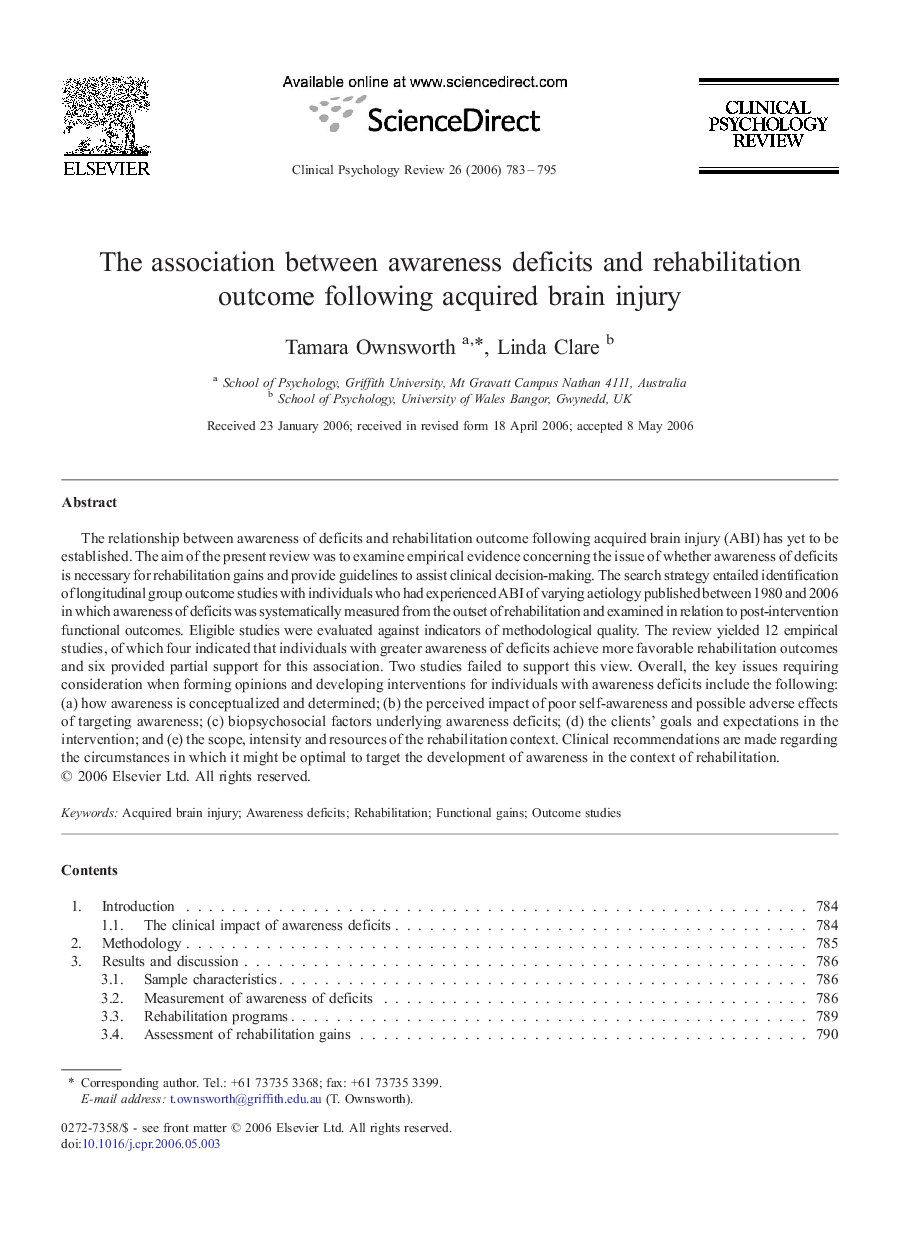| Article ID | Journal | Published Year | Pages | File Type |
|---|---|---|---|---|
| 904096 | Clinical Psychology Review | 2006 | 13 Pages |
The relationship between awareness of deficits and rehabilitation outcome following acquired brain injury (ABI) has yet to be established. The aim of the present review was to examine empirical evidence concerning the issue of whether awareness of deficits is necessary for rehabilitation gains and provide guidelines to assist clinical decision-making. The search strategy entailed identification of longitudinal group outcome studies with individuals who had experienced ABI of varying aetiology published between 1980 and 2006 in which awareness of deficits was systematically measured from the outset of rehabilitation and examined in relation to post-intervention functional outcomes. Eligible studies were evaluated against indicators of methodological quality. The review yielded 12 empirical studies, of which four indicated that individuals with greater awareness of deficits achieve more favorable rehabilitation outcomes and six provided partial support for this association. Two studies failed to support this view. Overall, the key issues requiring consideration when forming opinions and developing interventions for individuals with awareness deficits include the following: (a) how awareness is conceptualized and determined; (b) the perceived impact of poor self-awareness and possible adverse effects of targeting awareness; (c) biopsychosocial factors underlying awareness deficits; (d) the clients' goals and expectations in the intervention; and (e) the scope, intensity and resources of the rehabilitation context. Clinical recommendations are made regarding the circumstances in which it might be optimal to target the development of awareness in the context of rehabilitation.
